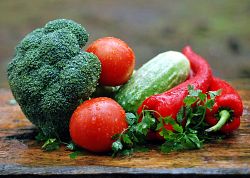

A prolonged drought across England is forcing key crop harvests up to two weeks earlier than normal, raising alarm over food security and the broader impacts of climate change on agriculture and energy systems.
According to Waitrose, wheat, oats, oilseed rape, apples and berries are all ripening ahead of schedule due to intense heat and record-low rainfall. England has experienced its driest spring on record, with 80% of rivers now at low flows. The lack of water has left crops under severe stress, with some farmers reporting yield losses of more than 50% for broccoli and other vegetables.
The drought is also straining farm finances. Higher irrigation needs are driving up energy costs for farmers, while lower crop yields reduce their returns. Experts warn this could ripple across the supply chain, increasing food prices for consumers and destabilising domestic production.
The National Farmers’ Union (NFU) has called for urgent government action, including investment in water infrastructure such as reservoirs, climate-resilient crop varieties, and regenerative farming practices that make soils better at retaining moisture. Without adaptation, the NFU warns, farmers will face repeated crises as extreme weather events become more common.
Beyond food security, the drought is affecting ecosystems. Reduced river levels are harming freshwater habitats, while earlier harvests risk disrupting traditional pollination cycles. Environmentalists argue that this year’s conditions highlight the urgent need to integrate agricultural resilience into the UK’s broader climate-adaptation strategy.
The drought also illustrates the energy-food-climate nexus: as hotter, drier summers become more frequent, farms will require more energy for irrigation and cooling, while power generation itself, particularly from hydropower and nuclear, could be constrained by water shortages.
Waitrose said it is working closely with suppliers to manage the impacts but warned that long-term adaptation is essential to safeguard the UK’s food supply.